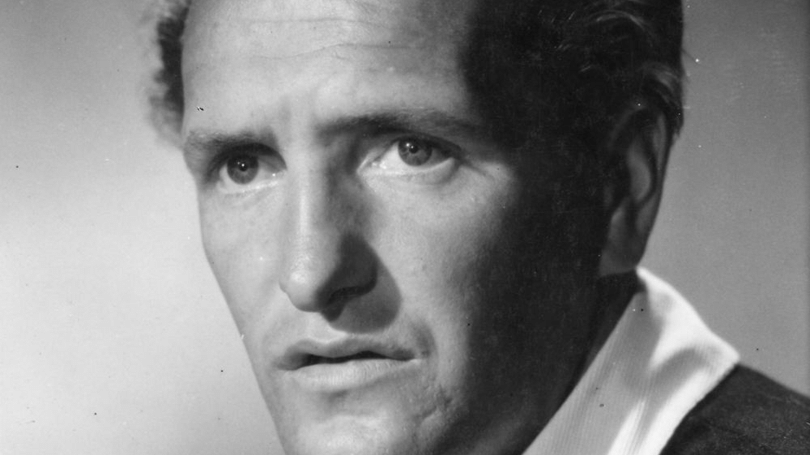Actor, 23 May 1917 – 15 June 1995.
Rye was a sailor on a sand dredger, a labourer in a gravel-pit and apprenticed as a carpenter, clerk and bookseller before he was admitted to the Odense Theatre School in 1938 at age 22, almost by happenstance – a friend of his who was preparing for his entrance exam and asked Rye to read a few lines with him. His friend was not admitted, but Rye was.
In 1940 he transferred to the Royal Theatre School in Copenhagen. After graduation he was hired by the Royal Theatre, where he stayed until 1961. From his years at the national stage he singles out Poul Reumert as a huge source of inspiration. Reumert called him "Rye-man."
Rye’s stage career culminated in his performances as a sailor in H.C. Branner’s Søskende (Brothers and Sisters), a landowner in A Month in the Country and a waiter in Samuel Beckett’s Endgame. In the 1960s he took a hiatus from acting and became a mover and a construction contractor. Returning to the stage in the 1970s, he led Danmarks Turneteater (Denmark’s Touring Theatre), which only did plays of Nordic origin. Among his troupe’s hits was Kaj Munk's The Word.
In the 1980s he made his stage comeback in the comedy genre, playing in Larm i kulissen, Arsenic and Old Lace and Servitricen.
Throughout his career, Rye was frequently hired for radio and TV drama.
Rye had his film debut in 1941 and acted in just one other film before getting his first leading role as the minister’s son Martin in Day of Wrath. It was a difficult role. He had to radiate youthful carelessness but also heavy gravity at the film’s ending, where he fails his stepmother and his lover Anne (played by Lisbeth Movin, who was in his class at the Royal Theatre School). The role was his breakthrough, and the film was also shown outside Denmark.
During the 1950s Rye was busy with film work, often playing crooks or emotionally crippled men. His all but unforgettable role came in Dreyer’s next film, The Word. Playing mentally disturbed Johannes in this, the first Danish adaptation of a Kaj Munk play, was the role of a lifetime for Rye. The play was already familiar to him. He had played young Mikkel Borgen on stage, and later he would play old Mikkel Borgen. So he suggested to Dreyer that he play Johannes. That was exactly what Dreyer was thinking, and they made up after their minor falling-out on the set of Day of Wrath.
To prepare for the role, Dreyer introduced Rye to a "person suffering from a nervous disorder" at the Psykiatrisk Hospital in Oringe near Vordingborg. Dreyer likely knew this man from the time Dreyer’s daughter Gunni had spent time there a few years before. The man had a very special way of speaking and Dreyer wanted Johannes to speak that way in the film. Rye recalls, "We recorded his voice on steel tape […] and I played it back to myself day and night to hit his intonations, pauses, vibrations."
When The Word was shown on TV in 1976, Rye said, “The director Carl Th. Dreyer had constructed a double-length feature around Munk’s play In the Beginning Was the Word, but the producer Tage Nielsen didn’t dare challenge the audience with more than a normal-length feature. On Dreyer’s orders, half the film was destroyed, so what was cut out could not later be misused in a wrong context. Many magnificent shots were lost."
In A Stranger Knocks from 1959, Rye again starred opposite Birgitte Federspiel, who played Johannes’ sister-in-law in The Word. A Stranger Knocks was another highlight of his career and both he and Federspiel received Bodil awards for best leading performance. The film was otherwise notorious for a highly erotic scene between the two stars – the censors ended up cutting nine seconds from the film.
Before he finally ended his career in 1989, Rye acted in Lars von Trier’s breakthrough film The Element of Crime (1984) and Gabriel Axel’s Oscar-winner Babette’s Feast (1987).
Rye is best known for his singular diction and melancholy appearance. This combination brought him many unique and enigmatic roles that also reveal the vulnerability behind his unpolished talent. He completely immersed himself in the characters he was playing, a kind of method acting before that style became popular.
